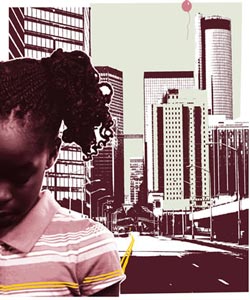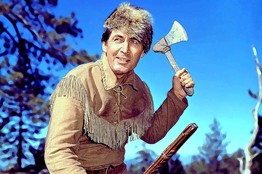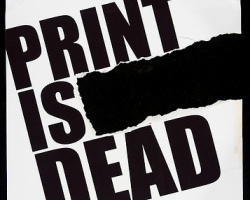
You’re welcome to send your Live Wire news tips or suggestions to [email protected].
Today’s Live Wire: Quick Links
- Scott’s Forgettable Inaugural
- Jon Stewart’s GOP Welcome
- Jailing Girls for Men’s Crimes
- David Brooks, Babbitt of Bobos
- Does Anyone Really Read Dickens?
- The Wussification of America
- The Importance of Analytical Reporting
- The Live Quote: Old Age
- A Few Good Links
![]()
Live Wire Rewinds
Rick Scott’s Forgettable Inaugural
 From the St. Pete Times: “Gov. Rick Scott’s disappointing inaugural address was neither inspiring nor enlightening, and his awkward delivery won’t win any style points. His “axis of unemployment” — taxation, regulation and litigation — is repackaged Republican campaign rhetoric, and Scott offered little insight into how he will approach those tired themes any differently. The new governor fell far short of the inaugural tradition of inspiring all Floridians, regardless of political persuasion, to work together for a brighter future. […] Scott devolved into a patter of partisan rhetoric with attacks on “a small group of predatory lawyers” and the teacher unions. He said his administration would offer Floridians more choices in education and health care, vaguely promising “a system focused entirely on what’s best for individual student learning” and pledging to avoid “top-down government programs that treat patients like interchangeable parts on an assembly line.” Of course, that’s exactly the management philosophy Scott relied upon to make millions as the head of the giant hospital company Columbia/HCA. […] Of course, Scott’s message played well with the business lobbyists afforded reserved seats in the audience because of their donations to the inaugural fund. It fell far short of comforting Floridians that he has a workable vision to improve education or government efficiency.” The full editorial.
From the St. Pete Times: “Gov. Rick Scott’s disappointing inaugural address was neither inspiring nor enlightening, and his awkward delivery won’t win any style points. His “axis of unemployment” — taxation, regulation and litigation — is repackaged Republican campaign rhetoric, and Scott offered little insight into how he will approach those tired themes any differently. The new governor fell far short of the inaugural tradition of inspiring all Floridians, regardless of political persuasion, to work together for a brighter future. […] Scott devolved into a patter of partisan rhetoric with attacks on “a small group of predatory lawyers” and the teacher unions. He said his administration would offer Floridians more choices in education and health care, vaguely promising “a system focused entirely on what’s best for individual student learning” and pledging to avoid “top-down government programs that treat patients like interchangeable parts on an assembly line.” Of course, that’s exactly the management philosophy Scott relied upon to make millions as the head of the giant hospital company Columbia/HCA. […] Of course, Scott’s message played well with the business lobbyists afforded reserved seats in the audience because of their donations to the inaugural fund. It fell far short of comforting Floridians that he has a workable vision to improve education or government efficiency.” The full editorial.
See Also:
- Floridians, Start Your Orwells: Rick Scott’s Buzzword-Assault on State Health Care
- Rick Scott’s Coming Assault on Schools
| The Daily Show With Jon Stewart | Mon – Thurs 11p / 10c | |||
| Top of the GOPs | ||||
|
||||
Jailing Girls for Men’s Crimes
 From Ms.: “B.W. was 13 years old when she offered to perform oral sex for $20 on an undercover officer in Texas. The officer arrested her and booked her as an adult. Despite evidence that B.W. had a history of sexual and physical abuse, was living with a 32-year-old “boyfriend” and under Texas law was considered incapable of consenting to sex because she was under 14, the county DA charged her with prostitution and obtained a conviction. Is a 13-year-old girl selling sex on the streets a criminal? This question is now being asked around the nation, generating vigorous debate and concrete action. In April, New York became the first state to enact a policy against prosecuting girls under age 18 for prostitution, with its groundbreaking Safe Harbor for Exploited Children Act. The act also provides support and services to sexually exploited youth under 16. Similarly, Connecticut, Illinois and Washington recently passed laws that decriminalize prostituted children. […] The National Center for Missing and Exploited Children estimates that 100,000 U.S. children each year are victims of commercial sexual exploitation within our borders. The Justice Department’s Child Exploitation and Obscenity Section estimates that nearly 300,000 U.S. youth are currently at risk of becoming victims of commercial sexual exploitation because they are runaways, throwaways, homeless or in other circumstances that make them particularly vulnerable to exploitation. […] And who opposed it? The Georgia Christian Coalition, the Georgia Baptist Convention and other conservative organizations staged protests and letter-writing campaigns, claiming the law would legalize child prostitution. They argued that arresting girls was the best way to get them off the streets and out of the hands of pimps. […] Other reasons for the increasing involvement of girls in commercial sexual exploitation are the soaring rates of child poverty in the U.S.—currently 19 percent—and the lack of social support services for girls in poverty and homeless youth. In Atlanta, the numbers are even higher: 32 percent of youth under 18 live in poverty, with 18 percent living in extreme poverty. […] Arresting sexually exploited girls for prostitution is an egregious form of blaming the victim. Society’s treatment of these girls is rife with double standards: We care about abused girls abroad but not at home, we prosecute underage girls but not the adult men buying and pimping them, and we charge some young girls with prostitution while protecting others with statutory rape laws.” The full article.
From Ms.: “B.W. was 13 years old when she offered to perform oral sex for $20 on an undercover officer in Texas. The officer arrested her and booked her as an adult. Despite evidence that B.W. had a history of sexual and physical abuse, was living with a 32-year-old “boyfriend” and under Texas law was considered incapable of consenting to sex because she was under 14, the county DA charged her with prostitution and obtained a conviction. Is a 13-year-old girl selling sex on the streets a criminal? This question is now being asked around the nation, generating vigorous debate and concrete action. In April, New York became the first state to enact a policy against prosecuting girls under age 18 for prostitution, with its groundbreaking Safe Harbor for Exploited Children Act. The act also provides support and services to sexually exploited youth under 16. Similarly, Connecticut, Illinois and Washington recently passed laws that decriminalize prostituted children. […] The National Center for Missing and Exploited Children estimates that 100,000 U.S. children each year are victims of commercial sexual exploitation within our borders. The Justice Department’s Child Exploitation and Obscenity Section estimates that nearly 300,000 U.S. youth are currently at risk of becoming victims of commercial sexual exploitation because they are runaways, throwaways, homeless or in other circumstances that make them particularly vulnerable to exploitation. […] And who opposed it? The Georgia Christian Coalition, the Georgia Baptist Convention and other conservative organizations staged protests and letter-writing campaigns, claiming the law would legalize child prostitution. They argued that arresting girls was the best way to get them off the streets and out of the hands of pimps. […] Other reasons for the increasing involvement of girls in commercial sexual exploitation are the soaring rates of child poverty in the U.S.—currently 19 percent—and the lack of social support services for girls in poverty and homeless youth. In Atlanta, the numbers are even higher: 32 percent of youth under 18 live in poverty, with 18 percent living in extreme poverty. […] Arresting sexually exploited girls for prostitution is an egregious form of blaming the victim. Society’s treatment of these girls is rife with double standards: We care about abused girls abroad but not at home, we prosecute underage girls but not the adult men buying and pimping them, and we charge some young girls with prostitution while protecting others with statutory rape laws.” The full article.
See Also:
- Census: Flagler’s Population Stalls at 91,600; 28% of Housing Units Vacant; Poverty Rising
- Flagler’s Poverty Gap: Boosting Food Stamps Enrollment–and More Accurate Numbers
- Abu Ghraib Brutality in Florida’s Youth Prisons: Suit Charges Rape and Other Abuses
David Brooks, Babbitt of Bobos
 From In These Times: “Brooks staked his claim as new millennial social seer with his breakout 2000 bestseller, Bobos in Paradise, which purported to gently mock the bohemian pretensions of the new American power elite. (These were, in Brooks’ waggish telling, the “Bobos”—a lazy conflation of “bourgeois” and “bohemian” that Brooks claimed was a signature new formation on the American social landscape, even though bohemians have always been drawn from the ranks of the bourgeoisie, and rarely harbor any serious ambition to forsake their socioeconomic birthrights.) But as with many works of pseudomeritocratic propaganda, Brooks’ labored puckishness proved on closer inspection to be the sincerest form of flattery. For all its consumer excesses, the Bobo class was, in his account, brilliantly adaptive and surprisingly resourceful. Instead of lurching into cataclysmic hedonism, Brooks’ affluent Bobos embarked on rigorous regimes of physical and spiritual self-improvement, practicing an enlightened “Modernism for the shareholders” and possessing a “Midas touch in reverse,” whereby everything they touch “turns to soul.” […] Brooks well understands that the way to confidently pilot one’s career upward is to play shamelessly to the broad-as-a-barn cultural prejudices of an elite readership rather than challenge its sensibilities with empirical findings. But there’s no doubt, in pure terms of career ambition, that Brooks had the best of this particular argument. Not long after the unhappy Atlantic episode, he was elevated to the plum perch as the lead conservative columnist for the Times—and from there, he was off and running with all sorts of similar grab-and-go generalizations about the deep-seated cultural determination of everything, from the rancorous mood of Major League Baseball playoffs to the course of global development policy and foreign aid.” The full appraisal.
From In These Times: “Brooks staked his claim as new millennial social seer with his breakout 2000 bestseller, Bobos in Paradise, which purported to gently mock the bohemian pretensions of the new American power elite. (These were, in Brooks’ waggish telling, the “Bobos”—a lazy conflation of “bourgeois” and “bohemian” that Brooks claimed was a signature new formation on the American social landscape, even though bohemians have always been drawn from the ranks of the bourgeoisie, and rarely harbor any serious ambition to forsake their socioeconomic birthrights.) But as with many works of pseudomeritocratic propaganda, Brooks’ labored puckishness proved on closer inspection to be the sincerest form of flattery. For all its consumer excesses, the Bobo class was, in his account, brilliantly adaptive and surprisingly resourceful. Instead of lurching into cataclysmic hedonism, Brooks’ affluent Bobos embarked on rigorous regimes of physical and spiritual self-improvement, practicing an enlightened “Modernism for the shareholders” and possessing a “Midas touch in reverse,” whereby everything they touch “turns to soul.” […] Brooks well understands that the way to confidently pilot one’s career upward is to play shamelessly to the broad-as-a-barn cultural prejudices of an elite readership rather than challenge its sensibilities with empirical findings. But there’s no doubt, in pure terms of career ambition, that Brooks had the best of this particular argument. Not long after the unhappy Atlantic episode, he was elevated to the plum perch as the lead conservative columnist for the Times—and from there, he was off and running with all sorts of similar grab-and-go generalizations about the deep-seated cultural determination of everything, from the rancorous mood of Major League Baseball playoffs to the course of global development policy and foreign aid.” The full appraisal.
Does Anyone Really Read Dickens?
 From The Economist’s Intelligent Life: “Oprah Winfrey, that literary kingmaker, recently selected “A Tale of Two Cities” and “Great Expectations” as her two book-club picks, billing her choice as a fireside “Date with Dickens”. She confessed that she had never read Dickens before, and seemed to offer no reason for choosing his work aside from the fact that it was the holidays. I can certainly think of no better image to relish during the holiday season than that of hordes of ragged, bloody Frenchmen being led in tumbrels to the guillotine (ie, the worst of times). But seriously, who else gets this kind of treatment? I’m surprised that Starbucks hasn’t already offered a Dickens Lemon Latte Punch (perhaps with a Perfect Proust Madeleine with proof of purchase). With this year marking the 140th anniversary of his death, and with the bicentennial of his birth less than two years away, it looks as if Charles Dickens, Inc. is up for yet another banner year.
From The Economist’s Intelligent Life: “Oprah Winfrey, that literary kingmaker, recently selected “A Tale of Two Cities” and “Great Expectations” as her two book-club picks, billing her choice as a fireside “Date with Dickens”. She confessed that she had never read Dickens before, and seemed to offer no reason for choosing his work aside from the fact that it was the holidays. I can certainly think of no better image to relish during the holiday season than that of hordes of ragged, bloody Frenchmen being led in tumbrels to the guillotine (ie, the worst of times). But seriously, who else gets this kind of treatment? I’m surprised that Starbucks hasn’t already offered a Dickens Lemon Latte Punch (perhaps with a Perfect Proust Madeleine with proof of purchase). With this year marking the 140th anniversary of his death, and with the bicentennial of his birth less than two years away, it looks as if Charles Dickens, Inc. is up for yet another banner year.
“But I wonder how much real attention Dickens’s books will get. In America at least, he seems to be an author more known than read. (Find me someone who claims to have read “Martin Chuzzlewit” and I will show you a goddamned liar.) Yet even if you’ve read only one of his books, his stamp is such that it feels like you’ve read them all. The virtues that kept him famous, prosperous and never out of print—that he is easily grasped and eternally inventive in his visuals and jokes—have served to make him iconic. His characters, of course, deserve most of the credit. They possess those funny allegorical names, behave just as fixedly, and get thrown into one melodramatic scene after another. But taken as a whole, those 989 characters make up an unforgettable universe of humanity matched only by Shakespeare, whom Dickens worshipped. George Orwell, in his famous essay on Dickens, pegged the novelist as a cynic who was neither a radical nor an idle bourgeois, but a self-made mystery who unswervingly championed the underdog, typically the working poor. He went on to assert that Dickens’s reticence to take a definitive position on class and rights carried over to his characters, who tend to feel unreal. While Orwell claimed he could conduct a conversation with a chap like Leopold Bloom, he held that he couldn’t imagine one with any of the folks imagined by Dickens.” The full essay.

From the Wall Street Journal: “We’re a nation of wimps. Of sissies. Of wusses. They’re the words trotted out when talking about our country’s leaders, our children’s generation, or the whiniest, most-fearful, most-paranoid aspects of our culture today. Just last week, Pennsylvania Gov. Ed Rendell belittled the NFL for postponing an Eagles-Vikings football game because of a snowstorm. “We’ve become a nation of wusses,” he said. And in a YouTube video, the grandmother of actor James Franco mocked the manliness of anyone who couldn’t watch Mr. Franco’s grisly amputation scene in the film “127 Hours.” Why are these such potent accusations in America? It’s because the charge touches on our national identity. Gov. Rendell says he was stunned by the interest in his comments, but on reflection, he now understands why his words stung. […] The United States defined itself by its pioneer spirit. “We were the brash Paul Bunyan nation with a don’t-tread-on-us culture,” says John Strausbaugh, author of the 2008 book “Sissy Nation.” Mr. Strausbaugh argues that World War II traumatized a generation of American men. Looking to shake off all that they had witnessed—horrific battles, Nazi atrocities—many of these former soldiers retreated into the U.S. suburbs, building lives of conformity. They became less adventurous, raising coddled children whose offspring would be even more indulged. The end result, he says, is a “sissy nation” in which adults talk about their homes or apartments as “cribs,” and every activity needs a helmet. As he puts it: “Once we were warriors. Now we’re worriers.” The full story.
See Also:
The Importance of Analytical Reporting
 From American Journalism Review: “[There’s a] complaint I’ve heard over the years from expert reporters at USA Today who, because of the paper’s strict sourcing rules, often find themselves forced to make points by quoting people who know far less about the subject at hand than they do. […] With instant access to information available for so many people, an old-school hard news story looks pretty silly the following morning. In a world where so much information is widely available in real time, it’s imperative for news organizations to provide added value: analysis, perspective, context, narrative. And to make it interesting. Otherwise, what’s the point? […] In the face of a Wild West world where so many outlandish charges, many of them based on absolutely nothing, are cavalierly tossed around, the old he-said, she-said approach seems bankrupt. If you are giving equal weight to truth and nonsense, you really are in the stenography business. It’s critical to take that next step and have the courage to reach conclusions — conclusions based on facts, not the ideology of the journalist or the news outlet. […] A news organization that wants a large, general audience has to steer clear of the partisanship trap. It has to aggressively cover the news, and be willing to call out those who are playing fast and loose with the facts. But it has to hold everyone and every position to the same standard. Do that, and the result will be provocative — and informative — journalism.” The full piece.
From American Journalism Review: “[There’s a] complaint I’ve heard over the years from expert reporters at USA Today who, because of the paper’s strict sourcing rules, often find themselves forced to make points by quoting people who know far less about the subject at hand than they do. […] With instant access to information available for so many people, an old-school hard news story looks pretty silly the following morning. In a world where so much information is widely available in real time, it’s imperative for news organizations to provide added value: analysis, perspective, context, narrative. And to make it interesting. Otherwise, what’s the point? […] In the face of a Wild West world where so many outlandish charges, many of them based on absolutely nothing, are cavalierly tossed around, the old he-said, she-said approach seems bankrupt. If you are giving equal weight to truth and nonsense, you really are in the stenography business. It’s critical to take that next step and have the courage to reach conclusions — conclusions based on facts, not the ideology of the journalist or the news outlet. […] A news organization that wants a large, general audience has to steer clear of the partisanship trap. It has to aggressively cover the news, and be willing to call out those who are playing fast and loose with the facts. But it has to hold everyone and every position to the same standard. Do that, and the result will be provocative — and informative — journalism.” The full piece.
See Also:
- News-Journal Circulation Plummets 10% in First 6 Months Under New Ownership
- The Suicide of Print Journalism
- How American Press Freedom Began on Wall Street
“When you become old… When you become old, you find yourself auditioning for the role of a lifetime; then, after interminable rehearsals, you’re finally starring in a horror film–a talentless, irresponsible, and above all low-budget horror film, in which (as is the way with horror films) they’re saving the worst for last.” From The Pregnant Widow, by Martin Amis (Knopf, 2010).
See Also:
- Somebody Is Sponge-Bathing Dick Cheney
- Theoretical Foundations of Terrorism
- Children, Parents, and Obesity
- Bach’s Cello Suites–Six Questions for Eric Siblin





























Leave a Reply